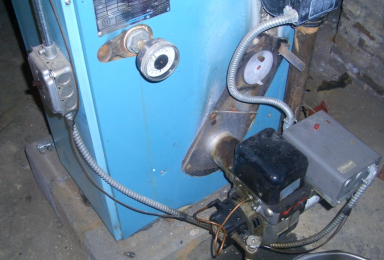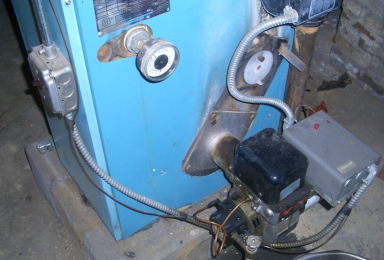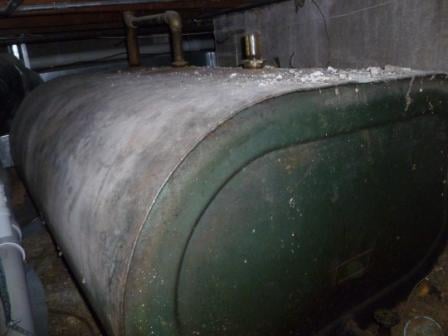Winter Heating Oil Additives and Other Steps For Your Heating System
This blog is for the portion of the country that still uses heating oil for their homes. That's about 6 million households across the country burning...

Bell Performance is based down in Central Florida, which doesn’t get very cold in the winter. But we know it’s a different story up north, and a lot of homes up there use heating oil to power their heating systems.
 Bell has formulated home heating oil additives for a couple of decades, to keep the oil stable while it’s stored, clean up any water condensation that happens over time, and make the flame burn brighter and more efficiently.
Bell has formulated home heating oil additives for a couple of decades, to keep the oil stable while it’s stored, clean up any water condensation that happens over time, and make the flame burn brighter and more efficiently.
But the question here is, do home heating additives work? How do we know they work? What can you look for?
Those are pretty big questions, but they’re important to have a handle on. And in order to even attempt to answer them, you first have to know what you’re trying to do and what those additive say they’re doing when you use them.
A lot of home heating additives have some element of water control. This is to clean up condensation that develops, over time, in the storage tank. Some water controllers are better than others in that some additives will use alcohol to try and make the heating oil absorb water. But it’s well known that alcohols are poor choices for controlling water. They do just that, but bring other problems into the picture. Home heating additives with non-alcohol water controllers are the better bet. Plus, if you choose those, you’re likely getting a better technology. Alcohol is the cheap and easy way out here, not the best way.
The most effective home heating additives will have “surfactants” that clean out the fuel delivery lines that get your heating oil from the tank to the furnace burners. They’ll also work to clean sludge out of the tank over time. These do work and the technology for accomplishing this has been pretty established for a long time.
Fuel stabilizers and antioxidants have been around for a long time, because it was recognized long ago that petroleum fuels needed help resisting attack from environmental influences. The most effective home heating additives will have some kind of stabilizer in them.
Anyone who stores fuel, including home heating oil, will likely have some kind of microbial growth in their storage tank. A biocide is the only thing that will kill that growth and keep the problem from spreading and becoming a bigger problem elsewhere. The thing to remember with biocides is that they typically aren’t packaged with other ingredients, they’re usually stand-alone. That’s not to say they *can’t* be combined, but the regulations are pretty tight on biocides, so any product changes require reams of new paperwork for whoever’s putting that product together for sale. The bottom line for biocides is they definitely work, especially in home heating oil.
Ultimately, nobody has the ability to test every single thing on the market to say ‘this one works’ vs. ‘this one does not’. So, for the consumer, there’s always going to be a little bit of guesswork involved.
If you were to look at one thing, the best recommendation would be to look at treat rate. If a home heating additive is legitimate, it’s not going to give the impression that it’s too good to be true.
Many home heating oil treatments contain the right ingredients to do 3 or 4 important things for the health of your heating system. But in order to pack enough punch to get those things done, they can’t do them all at some minute concentration like 1 to 10:000.
If the home heating oil additive you’re considering has a treat rate of, say between 1:2000 and 1:5000, it’s more likely that it will do what you need it to do than something that claims to do everything but dissolve warts and all at 1:20000 or something like that.

This blog is for the portion of the country that still uses heating oil for their homes. That's about 6 million households across the country burning...

It's that time again. Homeowners up in the soon-to-be-frosty North know what's coming. Old Man Winter is showing signs of crashing fall's party - and...

Although winter has made itself known with record snowfall nearly everywhere in the country coupled with record cold temperatures, spring is right...